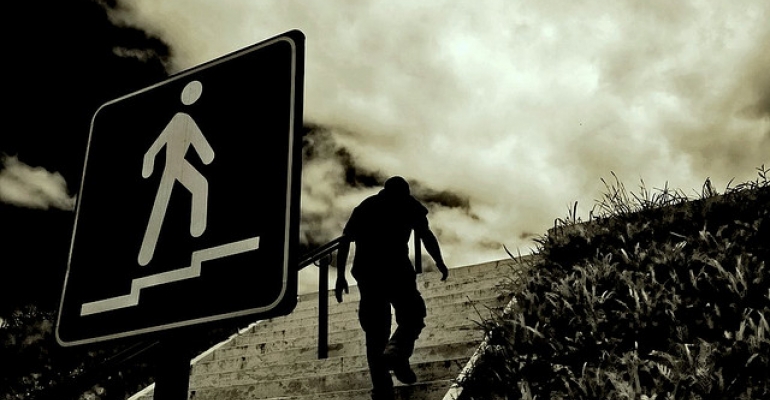
Confessions of a 1536 Calvinist
What left me feeling a little uneasy was the after lunch panel discussion. Why do we feel the need to refute or defend a theological system that not even its original founder would have felt comfortable in defending? Why do we feel the need to out logic the Bible? Why do we feel that we have to champion a bunch of people who were turning the principles of the Reformation on their head? The Reformation had kicked medieval scholastic theology very firmly into touch but, by the early seventeenth century, the Counter-Remonstrants had revived scholastic methodology. Luther and, dare I say, even Calvin would have turned in their graves! Perhaps the greatest irony of all is that we as a now second generation movement were getting bogged down in the arcane historical disputes of another second generation movement some 400 years earlier! In so doing we can end up, like the Counter Remonstrants, betraying our roots and origins. I thought we were a Biblical movement not a revival of seventeenth century scholasticism.
I love Jesus, I love the Bible and I love John Calvin (not quite so much as I love Jesus or the Bible, of course). However, the Calvin that I love is the 27 year old who wrote the Institutes in 1536. In this first edition of what became his definitive theological achievement Calvin saw predestination and election as a pastorally orientated Biblical truth which the Holy Spirit uses to fortify and assure us as believers of the certainty of our salvation:
Moreover, since the Church is the people of God’s elect, it cannot happen that those who are truly its members will ultimately perish (John 10:28) or come to a bad end. For their salvation rests on such a sure and solid bed that, even if the whole fabric of the world were to fall, it itself could not tumble or fall. First, it stands with God’s election, nor can it change or fail, unless along with that eternal wisdom.
By the time he wrote the definitive (1559) edition of the Institutes, Calvin had firmed up his views somewhat. In particular, he was now convinced of double predestination (election and reprobation). The hardening of his views was largely the result of attacks both from Catholics who saw predestination as something of an Achilles heel in an otherwise robust theological system and from fellow ministers such as Jerome Bolsec who believed it made God into a tyrant. Even then, however, Calvin was at pains not to go beyond where he felt the Bible was clear. Hence he made no definitive judgment on issues such as Limited Atonement or Infralapsarianism versus Supralapsarianism (the timing of God’s eternal decrees).
What goes wrong with Calvinism thereafter is largely the result of Calvin’s most vehement supporters. Beza and others felt they had to defend Calvin’s honour by “filling in the gaps” in his theology. Every i had to be dotted and every t had to be crossed. What they ended up with by the early seventeenth century would have given Calvin grave cause for concern. Their aim, other than defending Calvin’s honour was to make the system “logical.” Therein lies the problem. The Bible is happy to live with paradox. I am preaching on Joshua 2 this Sunday (we have just started a new series at ChristChurch Hailsham). What do I make of Rahab? She is certainly a puzzle. She is, at first sight at least, not one of the elect. God’s elect people were told to destroy her whole city including her and her family. Yet somehow, by faith, she end up in the hall of fame (Hebrews 11:31) and an ancestor of Jesus (Matthew 1:5). Meanwhile, Achan, who is at first sight at least one of God’s elect people, ends up being stoned to death (Joshua 7). Do I still believe in the central tenets of Calvinism – the sovereignty of God, the sinfulness of man and the glory of Christ? Absolutely! Not because Calvin taught them but because they are at the very core of the meta-narrative of Scripture. Can I live with stories, events and people that don’t quite seem to fit with what is logical? I must if I am to stick to the plain text of Scripture. Tim Keller illustrates this superbly in a sermon of his on Acts 27 I heard recently. Paul promises the sailors in verse 22 that there will be no loss of life. Why? Because a sovereign God has decreed that he should appear before Caesar in Rome. Yet just a few verses later (v31) Paul warns these same sailors of potential loss of life if they try and jump overboard. Why? Our choices matter. Conclusion? Let’s live with paradox. The Bible seems quite happy to do so.
I had, prior to the THINK Conference, intended my next blogs to be a short series on Calvinism in the 1570s, 80s and 90s. The real issue at stake at this point in the history of Calvinism is not soteriology but ecclesiology. But that’s another story…